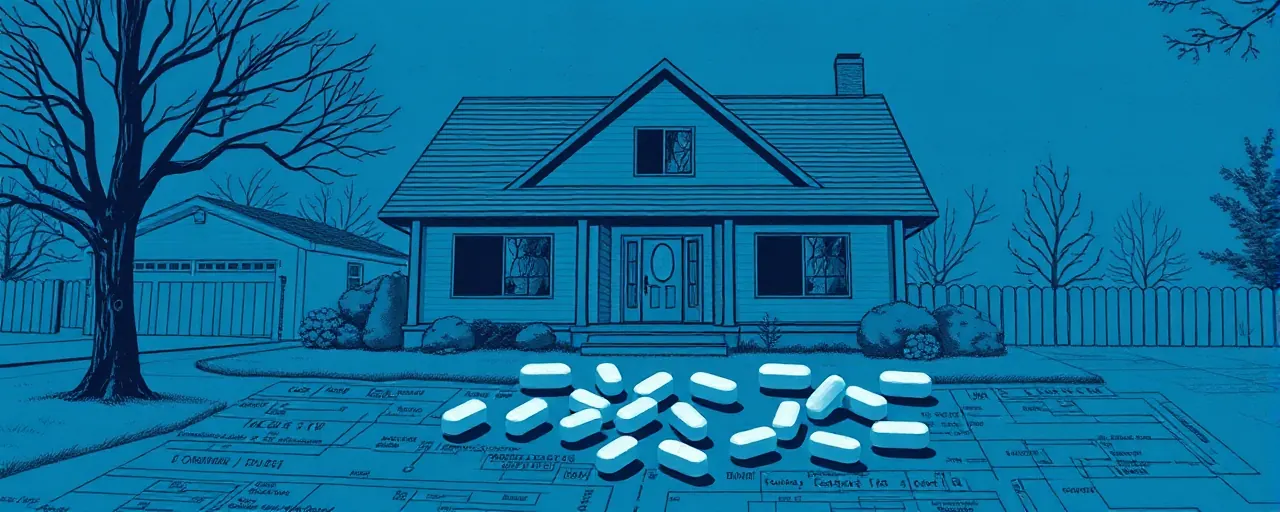A Sentence That Hit Hard
Chris Ruediger, a 61-year-old from Pennsauken, New Jersey, walked into a courtroom last November and left today, April 8, 2025, with a 16-month prison sentence. His crime? Conspiring to distribute oxycodone, a powerful and addictive painkiller that’s been at the heart of America’s opioid crisis. Between late 2022 and early 2023, Ruediger bought prescription pills from one relative and sold them to another, feeding an illegal supply chain. It came out of nowhere for some who knew him, but the evidence was clear, court documents reveal.
What makes this case stand out isn’t just the family ties. Ruediger admitted to moving between 100 and 400 kilograms of opioids by converted drug weight, a staggering amount for a single player in a larger game. He also tried to throw a wrench into the investigation by pressuring a co-conspirator to stay quiet. Federal authorities, however, weren’t deterred, and his guilty plea last year sealed his fate. This story pulls back the curtain on a persistent problem, one that law enforcement is still wrestling with across the country.
The Mechanics of the Crime
Ruediger’s operation was small but telling. Court records show he sourced oxycodone pills legally prescribed to a relative, then flipped them for profit to another family member already deep in the distribution game. It’s a pattern seen before, where personal connections blur the lines between lawful use and black-market dealing. The FBI’s South Jersey Resident Agency, backed by the Drug Enforcement Administration’s New Jersey Division, pieced it together over months, showing how even tight-knit schemes can unravel under scrutiny.
Beyond the pills, Ruediger’s attempt to obstruct justice added a layer of complexity. He leaned on a co-conspirator to clam up, a move that backfired when investigators closed in. Matthew Galeotti, head of the Justice Department’s Criminal Division, and Wayne Jacobs, special agent in charge of the FBI’s Philadelphia Field Office, announced the sentencing, framing it as a win against a drug trade that’s claimed countless lives. The Fraud Section’s trial attorneys, Paul Koob and Nicholas Peone, drove the prosecution, spotlighting a broader effort to choke off opioid pipelines.
How Does This Fit the Bigger Picture?
This isn’t an isolated incident. Oxycodone trafficking, while down from its peak in 2019, still gnaws at communities. Federal data from 2023 pegs it at 1.2% of drug cases, with sentences averaging 52 months, though Ruediger’s 16 months lands on the lighter side. Compare that to a Las Vegas dealer who got 17 years for moving tens of thousands of pills across state lines, or a Tennessee doctor locked up for 20 years after flooding the market with 10 million doses. Quantity, intent, and fallout all shape the punishment, and Ruediger’s case reflects a narrower scope.
Sentencing isn’t one-size-fits-all. Federal law slaps mandatory minimums of 20 years on cases tied to overdoses, with averages hitting 149 months when lives are lost, nearly double the 76 months for non-fatal cases. Ruediger dodged those steeper penalties, likely because no deaths were directly linked. Yet, the range sparks debate. Some argue lighter sentences fail to deter, while others say they’re fair for smaller players. The Justice Department, meanwhile, keeps its focus on dismantling networks, not just punishing individuals.
The Fraud Fighters Step In
Behind Ruediger’s conviction lies the Health Care Fraud Strike Force Program, a powerhouse launched in 2007 to tackle scams bleeding Medicare and Medicaid dry. Since then, it’s charged over 5,800 people tied to $30 billion in fraudulent claims, often linked to opioids. The program’s nine strike forces, spread across 27 districts, use data crunching to spot fraud fast, like a nationwide sting that nabbed 345 defendants for $6 billion in losses. It’s not just about money; it’s about cutting off the drugs at their source.
The Criminal Division’s Fraud Section runs the show here, zeroing in on health care fraud and illegal distribution. Take the Appalachian Regional Prescription Opioid Strike Force, which has charged over 90 people for pumping out 105 million pills since 2018. Or the bust of nine pharma execs who peddled 70 million doses worth $1.3 billion. Teamed up with the FBI, DEA, and Health and Human Services, these units are relentless, proving that even family-run deals like Ruediger’s can’t slip through the cracks.
What It All Adds Up To
Ruediger’s 16 months behind bars closes one chapter, but the book’s far from finished. His case is a snapshot of a grinding battle against opioid misuse, where law enforcement balances individual accountability with systemic takedowns. The numbers tell part of the story, thousands charged, billions recovered, yet the human cost lingers in overdose stats and shattered families. It’s a messy fight, one where victories like this feel both significant and small against the tide.
Looking ahead, the question hangs heavy, what keeps this machine running? Enforcement is one piece, but the demand for pills like oxycodone doesn’t vanish with a gavel’s bang. Agencies like the DEA and Fraud Section press on, adapting to new tricks, from counterfeit pills to telemedicine scams. For people watching from the sidelines, it’s a reminder that these cases aren’t just headlines, they’re threads in a fabric of addiction, profit, and justice still being woven.
